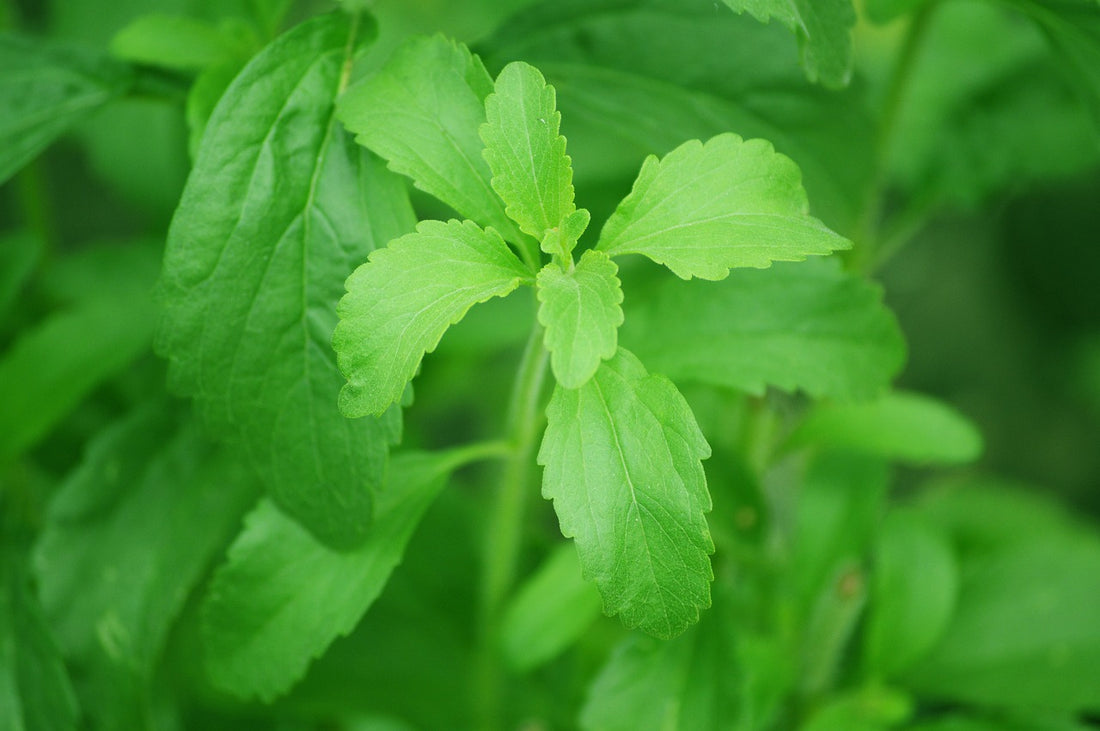
Why We Choose Allulose Over Stevia
Share
Both allulose and stevia are popular sugar substitutes. However, allulose has a taste profile similar to sugar, with a sweet flavor and no bitter aftertaste.
People use sugar alternatives for various reasons, from weight loss to blood sugar regulation and personal preference.
One thing is true no matter the reason: artificial sweeteners have come a long way. The earliest sugar substitutes had a bitter aftertaste, and many people avoided them. Today, there are way better options.
6 Reasons Why We Choose Allulose Over Stevia
1. Taste and Texture Similarity to Sugar
Allulose closely mimics the taste and texture of sugar, without the bitter aftertaste often associated with stevia.
This can make it a more appealing option for those who are looking for a sugar substitute that behaves like sugar in recipes.
2. Baking and Cooking Properties
Allulose can be used in baking and cooking in a manner similar to sugar. It can caramelize, brown, and contribute to texture and mouthfeel in a way that's more reminiscent of sugar.
If you want to maintain the characteristics of traditional baked goods, allulose might be a better choice.
3. Minimal Digestive Impact
Allulose is not fully metabolized by the body and has minimal impact on blood sugar levels.
It is also unlikely to cause gastrointestinal discomfort in most people, which can be a concern with sugar alcohols like erythritol.
4. Blood Sugar Management
Allulose is suitable for people who are monitoring their blood sugar levels, including those with diabetes, as it doesn't cause rapid spikes in blood sugar.
5. Labeling and Label Transparency
In some regions, allulose is treated as a sugar alternative with zero net carbohydrates and can be listed as such on nutrition labels. This might be preferred by individuals following low-carb or ketogenic diets.
6. Culinary Flexibility
Allulose can be used in a wider range of culinary applications due to its behavior in cooking and baking, which closely resembles sugar.
So, Which is Better for You, Allulose or Stevia?
When determining which is better for you, one must assess your frame of reference. Both stevia and allulose sweeteners have been approved by the Food and Drug Administration (FDA) and are generally considered safe (GRAS). The products are excellent for people with diabetes as they do not raise blood sugar levels.
The health benefits of allulose include almost no impact on the glycemic index, which is also true of stevia.
According to HealthLine, allulose has the added benefit of actually lowering blood sugar. In our eyes, this alone makes allulose stand out as the clear favorite.
Where do Stevia and Allulose Come From?
Stevia sweeteners are made by harvesting stevia extract from the leaves of the Stevia rebaudiana plant, an herbal shrub native to South America. Stevia's sweet taste comes from compounds in the leaves called steviol glycosides.
Allulose is a monosaccharide or simple sugar, and it occurs naturally in extremely small quantities in figs, raisins, maple syrup, and molasses.
Both stevia and allulose are plant-based sweeteners so we have no clear favorite in this comparison category.
Why is Allulose so Expensive?
Considered a rare sugar because it is found in such small quantities in nature, allulose is costly to harvest or make.
However, with the market for low-carb, sugar-free alternatives to regular table sugar, companies are working hard to make allulose more readily available and cost-effective.
Are There Downsides to Allulose?
There are only two possible downsides to choosing allulose: cost and stomach upset. Some people report side effects of gastrointestinal upset, such as bloating, stomach cramps, etc., when eating artificial sweeteners, particularly those with sugar alcohol. Most people feel that stomach problems are far less likely when consumed in moderation.
What Other Natural Sweeteners Are There?
The most famous natural sweeteners are:
-
Erythritol
-
Monk Fruit
-
Stevia
-
Yakon Syrup
-
Xylitol
Reasons to Choose an Allulose Sweetener like Our Keto Goods
Our Keto Goods allulose sweetener is:
-
Calorie-free: This zero-calorie sweetener can add sweetness to your food and beverages without guilt.
-
FDA Approved: The Food and Drug Administration has approved this sugar substitute.
-
Glucose Friendly: Especially important for people with diabetes, allulose will not raise blood glucose or insulin levels.
-
Low Carb: Allulose is keto-friendly with zero net carbs. Eating low carb is a crucial component of a Keto diet.
-
Taste: This is the sweetener that tastes most like regular sugar.
4 Ways to Use Allulose
The sky really is the limit when contemplating how to use allulose.
-
Cooking: Most recipes that call for a dash of sugar can be sweetened with a touch of allulose. One can also enjoy one's favorite marinades or salad dressings with less sugar.
-
Desserts: There is no limit to the number of desserts you can make with allulose syrup. Everything from baked goods to homemade ice cream sandwiches can be made deliciously and guilt-free.
-
Drinks: It does not matter if you prefer cocktails or mocktails; you can get the natural sugar taste without the carbs or calories. Hot drinks like coffee, tea, or cocoa can also be sweetened with allulose. And remember to add a kick of sweetness to your morning fruit smoothie!
-
Syrups: Some people enjoy our product as a syrup substitute on anything from pancakes and waffles to desserts or muffins.
